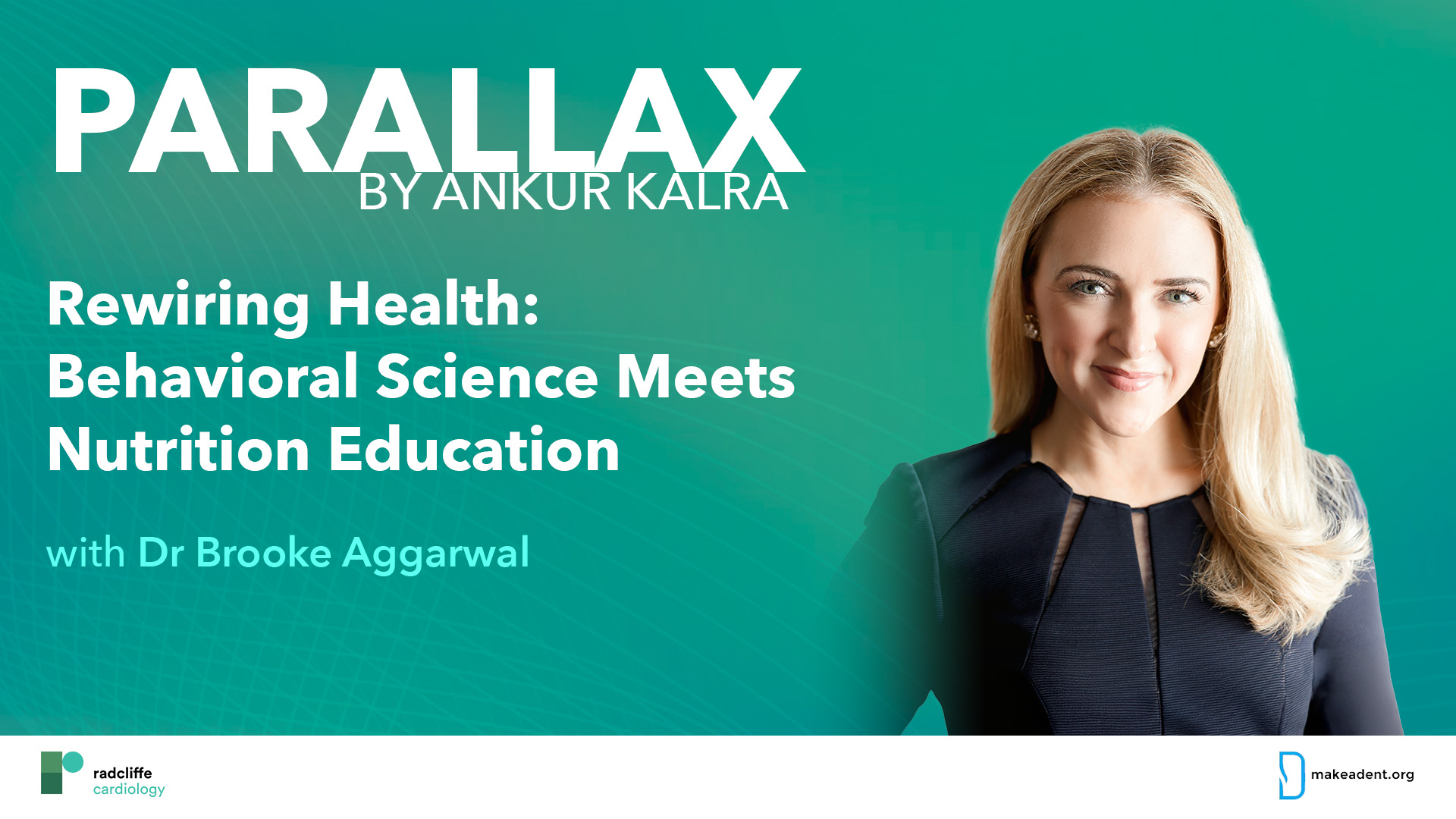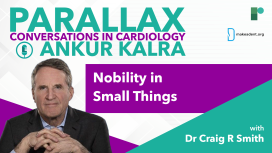
This week on Parallax, Dr Ankur Kalra welcomes Dr Brooke Aggarwal to dive deep into the fascinating intersection of behavioural science and nutrition education. Dr Brooke Aggarwal, an Assistant Professor at Columbia University Medical Center, focuses her research on how behavioural and psychological factors influence adherence to cardiovascular disease prevention guidelines.
In this episode, Dr Aggarwal shares insights from a groundbreaking study she worked on, the Family Intervention Trial for Heart Health (FIT Heart), unveiling the crucial role of social support and caregiver dynamics in maintaining healthy behaviours. Dr Kalra and Dr Aggarwal discuss innovative techniques such as motivational interviewing and cognitive behavioural therapy that are transforming the landscape of nutrition counselling.
Dr Aggarwal shares her insights into the practical applications of behavioural science in clinical settings, emphasising the importance of addressing cognitive distortions with evidence-based approaches. The discussion highlights the need for healthcare providers to adapt their language to enhance accessibility, creating a supportive environment for sustainable lifestyle changes within patients.
Join us as we explore how combining behavioural science with nutrition knowledge can empower individuals to take control of their health and create meaningful, sustainable improvements in their lives.


Chest pain is one of the most common reasons for an emergency room visit in the US, with almost 6 million ER visits annually, yet there is no consensus on how to compare the results from various hscTn assays. Tune in to hear Santiago outline the advantages and limitations of using hscTn as a standard biomarket to evaluate patients with suspected ACS in the ER.
Hosted by @AnkurKalraMD. Produced by @RadcliffeCardiology.





Tune in to discover the strategies that Dr. Kalra and Dr. Alasnag are currently employing and gain insights into how these data will shape their future decision-making in the catheterization laboratory. Don't miss this informative discussion at the forefront of interventional cardiology.

As we adapt to the changes brought about by the pandemic, Dr Singh outlines the necessary steps to foster a reality in which we can utilize these technologies to create more time for human connection.





